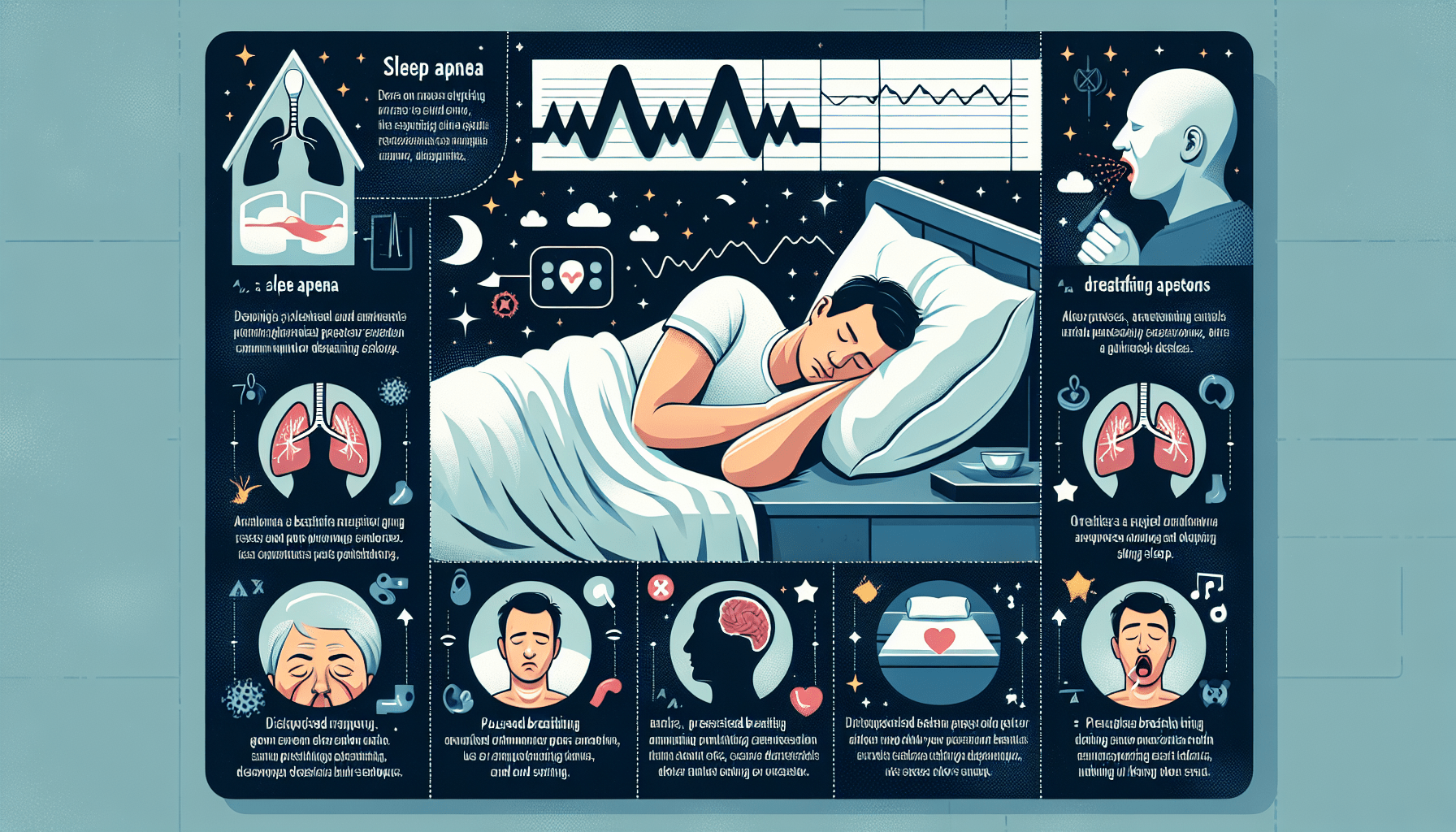If you find yourself persistently tired throughout the day, wake up with a sore throat, or experience frequent morning headaches, it may be time to pay attention to the possibility of sleep apnea. This common sleep disorder affects millions of people worldwide and can have serious health implications if left untreated. In this article, we will explore some of the most common symptoms associated with sleep apnea, so you can stay informed and seek the necessary help if needed. So, if you often feel exhausted despite a full night’s sleep or notice pauses in your breathing during the night, read on to discover potential signs of sleep apnea that you should watch out for.

Loud snoring
Loud and disruptive snoring can be a common symptom of sleep apnea. If you find yourself or someone you know snoring loudly during the night, it might be worth considering whether sleep apnea is the underlying cause. This loud snoring is often intermittent, meaning it comes and goes throughout the night. It may also be accompanied by gasping or choking sounds, which can be alarming not only for the person experiencing it but also for their bed partner.
Pauses in breathing
One of the most prominent symptoms of sleep apnea is the pauses in breathing during sleep. These pauses can last for a few seconds to a minute and can recur multiple times throughout the night. During these pauses, the person’s airway becomes blocked or collapses, preventing them from getting enough oxygen. As a result, the brain signals the body to wake up briefly in order to reopen the airway and restore normal breathing. These interruptions in the sleep cycle can be disruptive and lead to poor quality sleep.
Excessive daytime sleepiness
Feeling excessively sleepy during the day, even after a full night’s sleep, is another symptom of sleep apnea. This excessive sleepiness can often lead to difficulty concentrating, irritability, and decreased productivity. Individuals with sleep apnea may find themselves struggling to stay awake during activities such as watching television, working, or even driving. This constant fatigue and lack of energy can have a significant impact on daily life and overall well-being.
Morning headaches
Waking up with frequent headaches, especially in the morning, can be a sign of sleep apnea. These headaches are often a result of low oxygen levels during sleep. When the airway becomes blocked or collapses, the body’s oxygen levels decrease, leading to inadequate oxygen supply to the brain. As a result, headaches can occur upon waking up. However, it is important to note that these headaches may subside as the day progresses, making them easy to overlook as a symptom of sleep apnea.

Dry mouth or sore throat
Many individuals with sleep apnea often wake up with a dry mouth or a sore throat. This can be due to breathing through the mouth during sleep, which can lead to dryness of the oral cavity. Additionally, those who use continuous positive airway pressure (CPAP) therapy to manage their sleep apnea may also experience dryness or irritation in the throat due to the constant airflow. It is important to address these symptoms to ensure the comfort and effectiveness of any prescribed treatment.
Insomnia or difficulty staying asleep
Sleep apnea can disrupt the normal sleep cycle, causing insomnia or difficulty staying asleep. Frequent awakenings during the night can be a symptom of sleep apnea, as the body struggles to maintain a consistent breathing pattern. These interruptions in sleep can lead to fragmented and non-restorative sleep, leaving individuals feeling exhausted and groggy the next day. Identifying and addressing these issues can greatly improve sleep quality and overall well-being.
Frequent urination at night
Frequent trips to the bathroom during the night can also be a symptom of sleep apnea. This can be a result of the body’s response to the awakenings caused by sleep apnea. As the person wakes up multiple times throughout the night to restore normal breathing, they may also feel the need to empty their bladder. This increased frequency of urination can disrupt sleep even further and contribute to feelings of daytime sleepiness.
Decreased libido
Sleep apnea can contribute to a decrease in libido or sexual desire. The interrupted sleep and decreased oxygen levels can affect hormone levels and sexual function. Chronic sleep deprivation can lead to fatigue and a lack of energy, which can significantly impact one’s interest in sexual activity. It is important to recognize these changes and discuss them with a healthcare professional to determine the best course of action.
Mood changes and irritability
Sleep apnea can also lead to mood changes, including increased irritability, depression, and anxiety. The lack of restful sleep can impact overall mood and emotional well-being. Chronic sleep deprivation can disrupt the body’s hormonal balance, affecting neurotransmitters and contributing to feelings of irritability and mental instability. Recognizing these mood changes and seeking appropriate treatment for sleep apnea can vastly improve one’s quality of life.
Memory and concentration problems
Sleep apnea can affect cognitive function, resulting in memory problems and difficulty concentrating. The interruptions in sleep caused by sleep apnea prevent the brain from entering deep sleep stages, where memory consolidation takes place. This can lead to issues with both short-term and long-term memory. Additionally, the lack of quality sleep can make it challenging to stay focused and concentrate on tasks throughout the day. Identifying and addressing sleep apnea can help improve cognitive function, memory, and overall mental performance.
In conclusion, it is important to be aware of the common symptoms of sleep apnea. From loud snoring to excessive daytime sleepiness, morning headaches to frequent urination at night, and decreased libido to memory and concentration problems, sleep apnea can have a significant impact on one’s well-being. If you or someone you know is experiencing any of these symptoms, it is recommended to consult a healthcare professional for a proper diagnosis and appropriate treatment options. Improved sleep quality can lead to better overall health and a higher quality of life.
